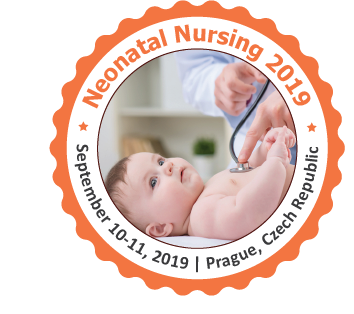
Matseliso Elizabeth Yako
King Saud Bin Abdul-Aziz University for Health Sciences, Saudi Arabia
Title: Factors infl uencing adherence to folic acid and ferrous sulphate nutritional intake among pregnant teenagers
Biography
Biography: Matseliso Elizabeth Yako
Abstract
Context: The study was carried out in Buffalo City Metropolitan Municipality (BCMM), Eastern Cape; one of the nine Provinces in South Africa. Aim: The purpose of this study was to determine factors influencing folic acid/ferrous sulphate nutritional intake among pregnant teenagers in BCMM. Materials &
Methods: This was a cross-sectional, descriptive study using a sample of 300 purposively selected pregnant teenagers aged between 13-19 years, attending antennal clinic in BCMM. A questionnaire was used for data collection.
Results: The results indicated that most (97.0%) participants obtained their supplements from the government clinic; took other medications (87.2%); regularly used nutritional supplements, (71.7%); agreed that folic acid and ferrous sulphate were important for pregnancy outcomes (96%); should be taken before pregnancy and after birth (68.2%) and nurses had explained the possible pregnancy complications, (71.7%). About 84.1% agreed that the medication containers were clearly labeled; and nurses had explained the side effects of folic acid/ferrous folate (60.7%) and the likely action in case of side effects occurred (56%). The majority of the participants also agreed that folic acid and ferrous sulphate are good (88%) and harmless to the unborn baby (75.3%). The majority (49.2%) did not consume dark leafy vegetables, cabbage (35.0%), liver (47.1%), beef/lamb (42.0%), fish (43.3%) and beans/legumes (36.4%). Nausea, vomiting, stomach pains, forgetting to take the supplements due to busy schedules, non-availability of the supplements in the in health facilities were the major reasons influencing the intake of folic acid and ferrous sulphate. Also, there was low consumption of iron and folate rich foods by pregnant teenagers.
Conclusion: Some pregnant teenagers did not take the supplements as recommended, while others had a diet poor in folic acid and ferrous sulphate. It is recommended that midwives and other stakeholders should emphasize the importance of taking nutritional supplements and consuming diet that rich in folic acid and ferrous sulphate during pregnancy.

